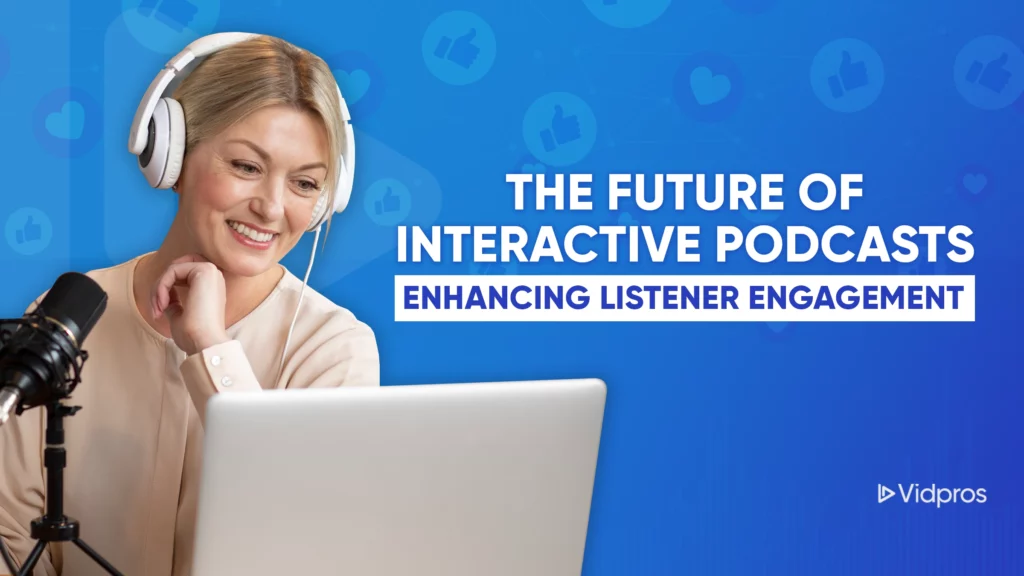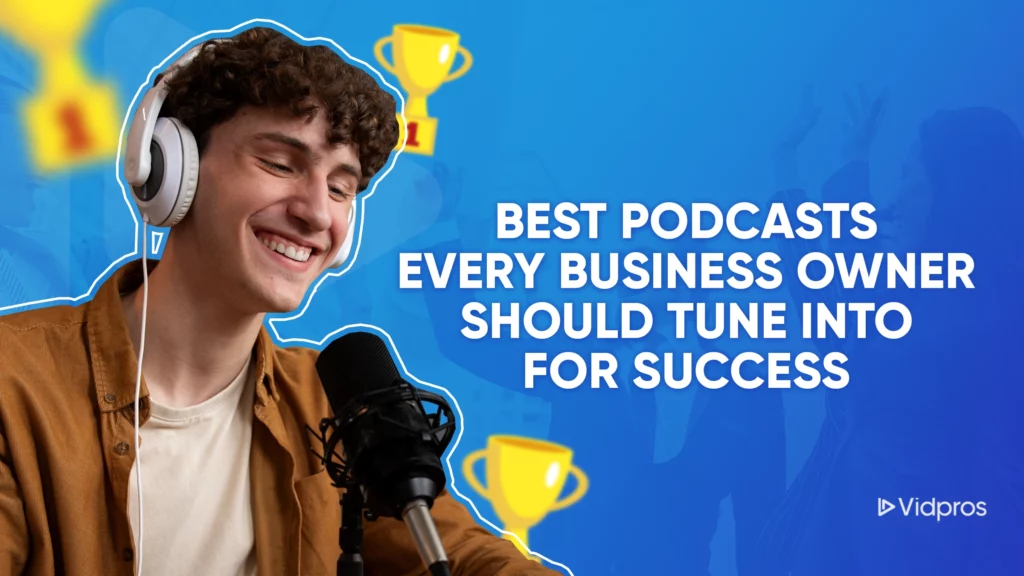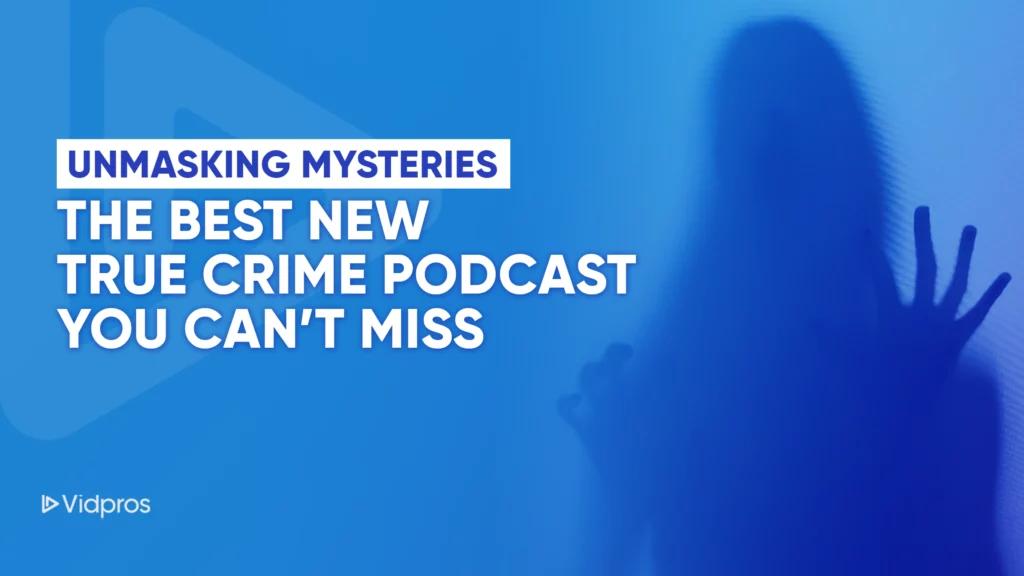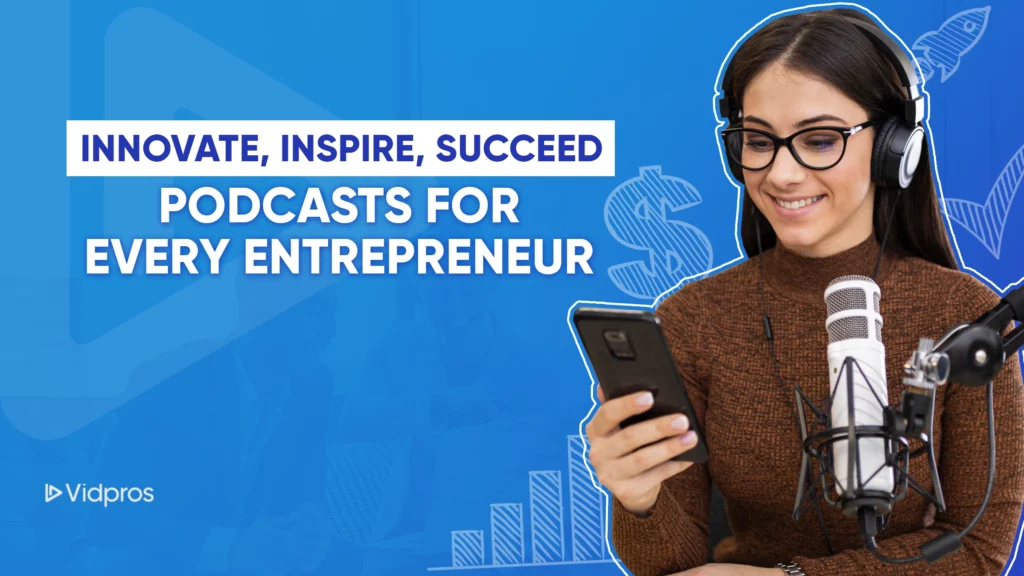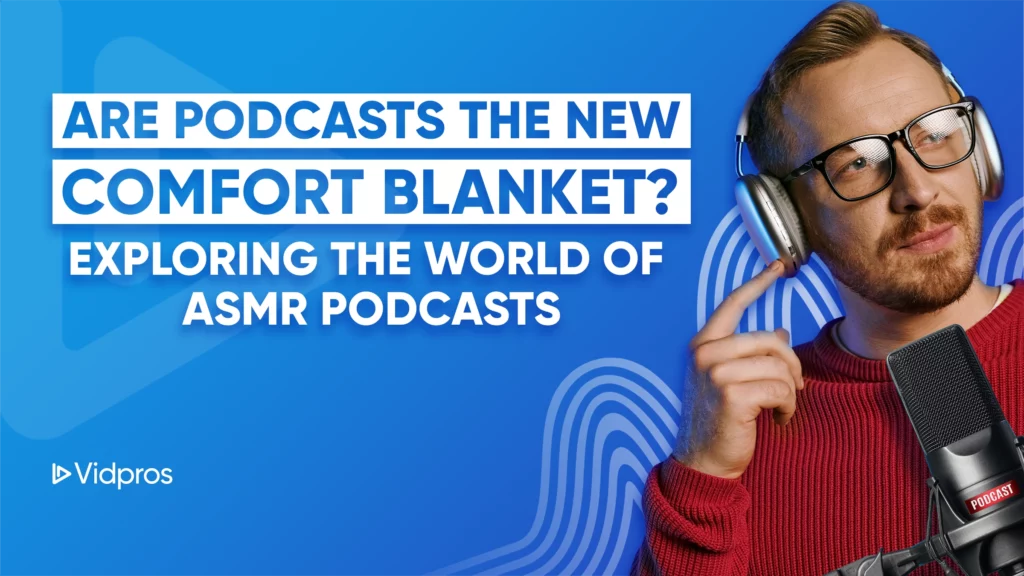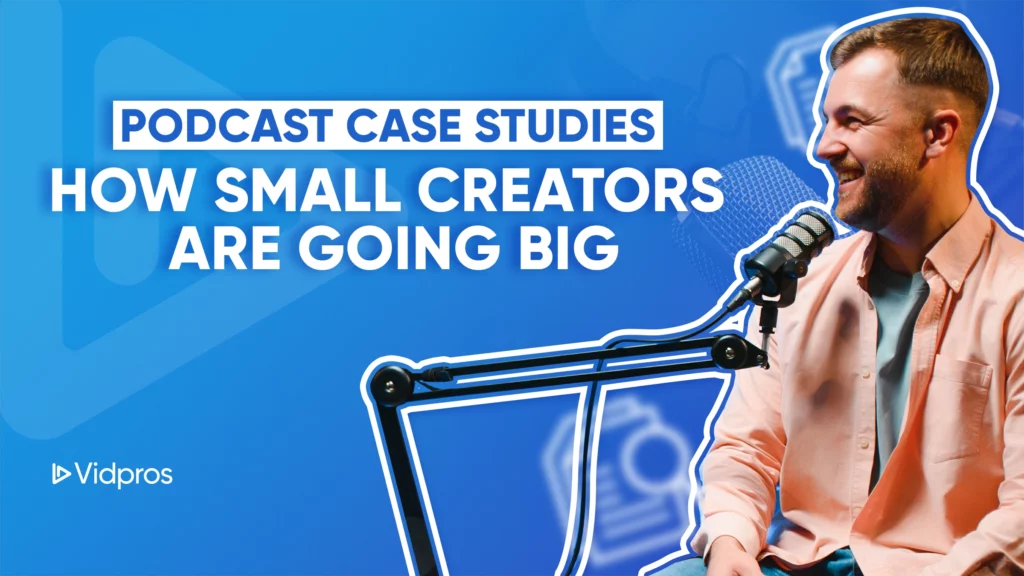Podcasting has evolved dramatically over the past decade. No longer confined to static, one-way audio experiences, podcasts are transforming into dynamic, interactive platforms that offer active participation and deeper engagement. With advancements in technology and the integration of interactive features, the future of podcasting is poised to redefine how audiences consume and interact with audio content.
This article dives into the rise of interactive podcasts, their unique appeal, and actionable steps for creators looking to start a podcast that resonates with a loyal audience.
The Rise of Interactive Podcasts

Interactive podcasts have seen a significant rise as audiences demand more engaging and participatory content. Unlike traditional audio podcasts, which offer pre-recorded, one-way storytelling or discussions, interactive podcasts integrate real-time audience input, personalized content, and social media integration. The appeal lies in the ability to connect with podcast hosts directly and influence podcast episodes, creating an engaging experience for listeners.
Streaming platforms such as Apple Podcasts and Google Podcasts now feature interactive elements such as polls, live Q&A sessions, and listener-driven discussions. Podcast case studies highlight how these features successfully build community and foster a two-way communication loop between creators and their listeners.
What Are Interactive Podcasts?

Interactive podcasts are podcast formats designed to incorporate audience participation, often in real time. Unlike traditional audio content, where listeners passively consume the material, interactive podcasts encourage listeners to engage actively. These podcasts may include features such as live audience polling, listener-submitted questions, or even real-time decisions that shape the direction of the entire episode.
For example, a podcast episode might include a gamified element where listeners solve riddles, or it may allow users to vote on the next topic. This format significantly enhances listener engagement, builds a loyal audience, and encourages repeat listeners.
How to Make an Interactive Podcast: A Step-by-Step Guide

Creating an interactive podcast requires careful planning, the right technology, and a focus on engaging content.
Below is a comprehensive guide:
Choose the Right Platform
Select podcast hosting platforms that support interactive features. Platforms like Apple Podcasts Connect and Spotify offer tools for integrating polls and Q&A features directly into podcast episodes. Ensure your platform supports high-quality audio and provides analytics to monitor listener engagement.
Plan Interactive Content
Identify your podcast topic and design episodes that incorporate opportunities for active participation.
For instance:
-
Create segments for live listener questions.
-
Host themed episodes with listener polls determining the topic.
-
Incorporate trivia or challenges to keep listeners engaged.
Incorporate Technology
Leverage AI and interactive platforms to enhance your podcasting journey. Tools like voice recognition enable dynamic content personalization, while apps like Riverside and SquadCast streamline live podcasts. Additionally, a podcast hosting service ensures your episodes are accessible to your audience.
Use Quality Podcast Equipment
High-quality audio is essential for a good podcast. Invest in a reliable audio interface, podcast recording software, audio recording tools, and editing software to ensure clarity. Utilize tools like Audacity or Adobe Audition for audio editing and background music integration.
Utilize Social Media Integration
Promote your podcast on social media channels to engage listeners in real-time. For instance, live-tweet during episodes or create Instagram polls to shape your podcast content.
The Role of Technology in Enhancing Engagement
Technology is a driving force in the evolution of interactive podcasts. AI, voice recognition, and podcast software are transforming static episodes into dynamic, engaging content. Tools like Otter.ai provide transcription services, enhancing accessibility and SEO through show notes.
Interactive platforms like Podbean and Anchor support live podcasts with chat features, while AI tools personalize content based on an audience’s preferences. By integrating these technologies, podcast creators can deliver a more compelling experience and encourage listeners to actively participate.
Personalized Content and Listener Feedback
Interactive podcasts thrive on personalization. Incorporating listener feedback ensures that podcast content aligns with the audience’s preferences. Real-time comments, polls, and surveys provide insights into what works and what doesn’t.
For example:
-
Use polls to decide the next podcast topic.
-
Allow listeners to submit questions or suggest guests for interview shows.
-
Create personalized episodes for specific listener demographics.
By doing so, you create an engaging experience tailored to your audience.
Gamification and Interactive Elements in Podcasts
Gamification is a powerful tool for enhancing engagement in podcast episodes. By incorporating interactive elements like quizzes, challenges, and rewards, you can transform passive listening into active participation.
Strategies to Gamify Your Podcast
-
Interactive Quizzes: Test listeners’ knowledge of topics discussed in the episode.
-
Challenges: Create weekly tasks and reward listeners who participate.
-
Leaderboards: Foster competition among your audience.
These features not only engage but also encourage listeners to return for new episodes.
Integrating Social Media for Real-Time Engagement
Social media integration is vital for interactive podcasts. Platforms like Instagram, Twitter, and Facebook allow you to connect with your target audience in real-time.
Best Practices
-
Use live streams to discuss podcast topics.
-
Host AMA (Ask Me Anything) sessions on social media channels.
-
Share behind-the-scenes footage or bloopers to humanize the podcast host.
Such strategies build a sense of community and keep listeners engaged beyond the audio file.
Listener-Driven Stories and Co-Creation
Incorporating listener-driven stories fosters a collaborative relationship between podcast creators and their audience. Invite listeners to share their experiences or contribute ideas for episodes. This approach not only diversifies content but also strengthens the bond with your audience.
For instance, podcasts like The Moth thrive on listener-submitted stories, creating deeply personal and relatable content. Similarly, an interactive murder mystery podcast allows listeners to engage by solving clues or voting on story outcomes, adding a layer of excitement and involvement to the experience.
Monetizing Interactive Features
Interactive podcasts offer unique monetization opportunities. Some ideas include:
-
Offering premium episodes with exclusive interactive content.
-
Hosting live podcasts with ticketed access.
-
Partnering with brands for sponsored quizzes or challenges.
By diversifying revenue streams, creators can make money podcasting while providing value to their audience.
Interactive Podcasts and the Future of Podcasting Platforms
The future of podcast hosting platforms will be shaped by their ability to support interactive features and leverage advanced technologies. Platforms like Spotify and Apple Podcasts are already integrating tools such as listener polls and video podcasts, pushing the boundaries of traditional podcasting.
Additionally, the rise of artificial intelligence and personalized recommendations is revolutionizing how users engage with content. By analyzing preferences and listening habits, these platforms deliver tailored experiences, enhancing user satisfaction and creating new opportunities for creators to connect with their audiences more effectively.
The Potential of AR/VR in Interactive Podcasts
The integration of AR and VR technologies could revolutionize the podcasting landscape. Imagine a podcast recording where listeners can explore a virtual set or interact with the 3D avatars of the podcast host. Such immersive experiences will redefine listener engagement and attract new listeners seeking innovative content.
Additionally, creators who want to make their podcasts more dynamic and visually appealing can rely on podcast video editing tools to enhance their episodes with high-quality visuals and seamless transitions, making them more compelling for viewers.
As podcasting evolves, the blending of traditional audio formats with interactive video elements is becoming a trend. Features like video podcasts allow audiences to connect on a deeper level by seeing the hosts’ expressions or visual aids that complement the discussion. Platforms embracing this shift, coupled with advanced podcast video editing solutions, will position themselves as leaders in delivering content that appeals to a tech-savvy and diverse audience.
Challenges in Creating an Interactive Podcast
Despite their potential, interactive podcasts come with challenges:
-
Technical Barriers: Ensuring seamless integration of interactive elements.
-
Accessibility: Making features user-friendly for all listeners.
-
Balancing Interaction and Content: Maintaining the quality of content while incorporating interactive features.
By addressing these challenges, creators can deliver high-quality audio experiences that resonate with their audience.
The Future of Podcasting: Trends and Innovations
As interactive podcasts grow in popularity, several trends are emerging:
-
Increased focus on personalization through AI.
-
Expansion of live podcasts with social media integration.
-
Adoption of immersive technologies like AR and VR.
Creators who embrace these trends and prioritize listener engagement will thrive in the evolving podcasting landscape.
Final Thoughts: Enhancing Listener Engagement through Interactivity
Interactive podcasts are the future of audio content, offering a dynamic fusion of compelling storytelling and active audience participation. By incorporating cutting-edge technology, gamification elements, and seamless social media integration, creators can craft episodes that not only entertain but also build a loyal, engaged community. This approach gives listeners a sense of ownership, making each episode feel like a shared experience rather than just a passive listening session.
If you’re ready to take your podcast to the next level and stand out in this competitive space, professional video editing can elevate your brand’s presence and attract even more listeners.
Vidpros provides expert editing services that transform your podcast into a visually captivating, immersive experience that leaves a lasting impact.
Don’t wait – start today and watch your podcast soar to new heights!

